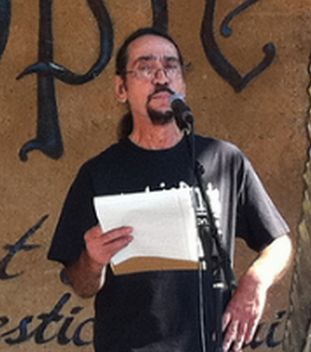"The debt is real and broadly affirmed by African Americans."
There is little dignity or prospect of illumination in arguing with the likes of Harvard's Henry Louis Gates on the merits of reparations for African Americans (or for continental Africans). Corporate academic assassins, like corporate lawyers, are paid to do harm and spread confusion for their clients' benefit, not to advance the cause of justice, or even simple rationality. Gates' assertion that continental Africans, rather than Europeans and Euro-Americans, owe a debt to the formerly enslaved American diaspora, is a pollution of the public discourse designed to slime the very existence of an outstanding social debt for slavery and Jim Crow. He attempts to confer both Harvard cachet and Black skin credibility to an argument long favored by barroom whites stationed well below Gates' in the social order: that "they" (Blacks) are undeserving beasts who sold "themselves" into bondage.
This is the low-life level to which Gates tried to take the reparations discussion with his April 23 New York Times op-ed piece. Since then, a number of able-minded writers, scholars and activists have held their noses and gotten down-and-dirty with the noxious Gates. He has repeatedly been exposed as a peddler of "moral and intellectual absurdity," in the words of anti-racist writer Tim Wise. Gates has (once again) confirmed that he is an intellectual fraud and white man's puppet.
But, wrestling in the cesspool with Gates, a mercenary for the enemy, is not the same as holding a respectful discussion with comrades and allies who oppose demands for reparations as bad strategy, diversionary, or a magnet for hustlers.
"Gates attempts to confer both Harvard cachet and Black skin credibility to an argument long favored by barroom whites."
Gates has given anti-reparations Blacks a bad name. His stench should not be allowed to hover over an issue that many activists hold dear and strong majorities of Black people support, but about which honest people may disagree.
I support reparations. That is, I believe African Americans are owed a debt for ancestral slavery and Jim Crow and for contemporary racism and the gross inequities that are the legacy of slavery. That the debt is incalculable does not mean it doesn't exist, or is irrelevant. On the contrary, the debt is inseparable from the fabric of the African American past and present. It demands to be paid. But in what form, under what conditions, is for a self-determining people to decide in the course of struggle. There is no model for redress of the crimes that created the United States of America.
Adolph Reed, the renowned activist and University of Pennsylvania political science professor, is one of my favorite political thinkers. Prof. Reed believes Blacks should not demand reparations, for reasons he outlined in the December, 2000 issue of The Progressive magazine. The article, "On Reparations," remains among the most coherent rejections of reparations by a progressive Black activist/scholar.
Reed was responding to a resurgence of reparations fervor, that had taken the issue beyond what he dismissed as "politically marginal, nationalist circles" into the main streams of African American political thought, partially on the success of former TransAfrica executive director and founder Randall Robinson's book, The Debt: What America Owes to Blacks, published in January, 2000.
"Dr. Reed opposes reparations because it is a "nonstarter in American politics.'"
Reed is, naturally, well versed in the rationales for reparations and is in general agreement on the same set of facts wielded by reparations proponents: that the United States was built on the backs of slaves, and that the U.S. government has been complicit in virtually every aspect of the crimes against the progeny of the slaves. "Still," he wrote, "I imagined that the reparations talk wouldevaporate because it seemed so clearly a political dead end."
Dr. Reed opposes reparations because it is a "nonstarter in American politics." He fears that, with support for affirmative action "eroded significantly"reparations raises the ante on compensatory policy exponentially."
In other words, if the white folks are backing away from affirmative action reparations' weak sister what makes Blacks think they'll agree to even stronger medicine? To which many of us would reply: It's not about bargaining with white folks, it's about organizing Black folks for struggle, putting our people in motion and changing the relationships of power. The debt is real and broadly affirmed by African Americans. So what if only a sliver of whites recognize The Debt? How can one speak of social transformation without taking The Debt into consideration, especially when around 7 out of 10 Blacks favor the principle of government-paid reparations or at least they did from 2000 to 2005, as documented by Black political demographer Dr. Michael Dawson.
"A Unifying Metaphor"
Dr. Reed attributes reparations' appeal "partly as a unifying metaphor that expresses the historical linkage of what conventional racial liberalism construes as separate, isolated moments of injustice. This is an important corrective, though it's one that can easily occur without the call for reparations."
Reed doesn't explain what would substitute for a pro-reparations narrative which is based, after all, on historical facts not in serious dispute among Black progressives and one wonders why activists should go to extraordinary lengths to conceal the overarching presence of The Debt. Is it just to avoid upsetting white people, only about 3 percent of which support reparations to Blacks, according to Dr. Dawson?
(Note: You can view every article as one long page if you sign up as an Advocate Member, or higher).





